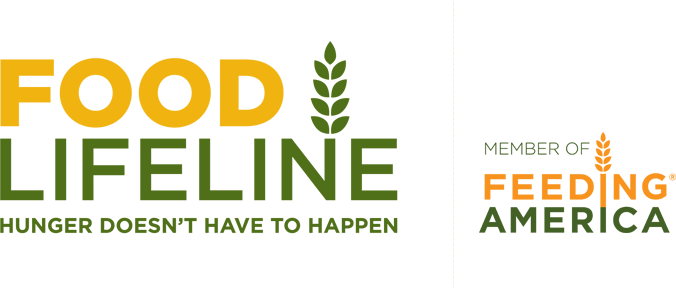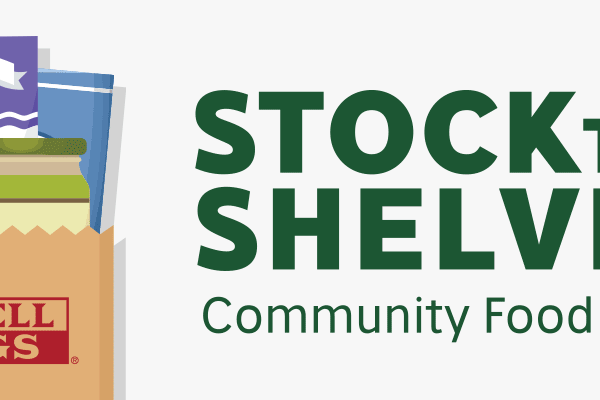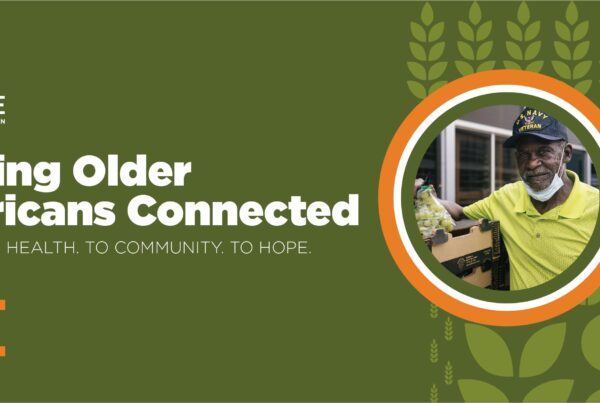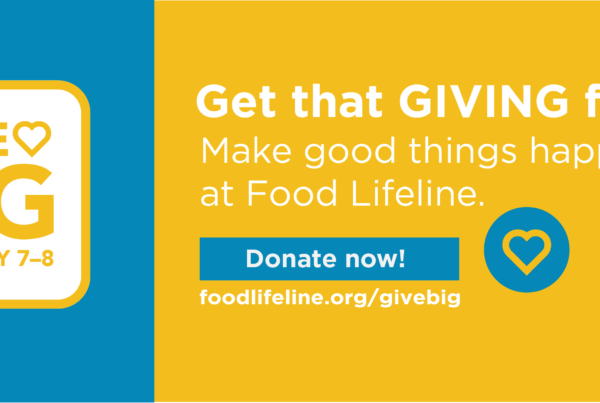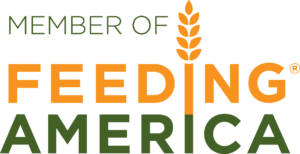
Photo: Community Access Specialist Eva Fuentes works with members of the Mutual Aid Solidarity/Neighbors in Action. The group helps create access to food and services for their community in Skagit County. A grant from UnitedHealthcare makes this relationship possible.
By Ryan Scott
Chief Development Officer
UnitedHealthcare is joining Food Lifeline in making a commitment to Western Washington communities experiencing hunger. A generous grant from the healthcare company is now empowering Food Lifeline to better address food insecurity among Western Washington’s most vulnerable populations.
The $300,000 grant is funding a two-pronged approach to addressing the root causes of hunger that create food insecurity among our most underserved communities. The first prong of this program is the sourcing and distribution of culturally relevant foods to those most in need. These are nutritious foods that meet the diverse tastes and needs of customers based on their cultural identity.
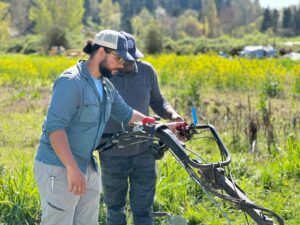
Food Lifeline’s Community Access Specialists work with dozens of groups across Western Washington, including the Black Farmers Collective. The BFC grows culturally relevant foods for their African communities and neighborhoods in King County. This work is supported by a generous grant from UnitedHealthcare.
The second prong of this program is providing funding for Food Access Specialists who work directly with individuals and community groups that represent underserved communities across King, Skagit, and Whatcom Counties.
Food Access Specialist Prenz Sa Ngoun explains.
“As a food access specialist, I primarily work with Black, Indigenous, people of color, immigrant and refugee communities looking to build relationships and really learn from each community on how they’re addressing food insecurity in their own ways. And as we know, kind of working in food justice here, not all communities have the same solutions or require the same solutions to kind of meet their needs for the community.”
The food access specialists have helped support sixteen community food sovereignty fund projects this year alone.
In King County, the fund has provided staffing and farm materials for the black farmers collective…a Redmond farm co-op where farmers are growing culturally relevant foods for their communities.
In Skagit and Whatcom counties…the fund is creating food pantries and edible landscaping for catholic housing services of Western Washington. Fruit from these newly planted trees provides nutritious food for the entire community.
Eva Fuentes is also a food access specialist, serving Skagit and Whatcom Counties. She says her job means being an advocate for communities unfairly burdened by poverty and systemic racism.
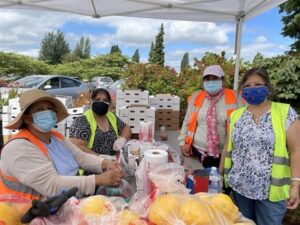
Food Lifeline’s Food Access Specialists work with the Tri-Parish Food Bank in Skagit County. The food bank serves a large population of migrant farmworkers and Latin X neighbors by growing culturally relevant foods and providing support to families through food and funding. This program is made possible by a grant from United Healthcare.
“It’s always about community, it’s always about being there for them. You’re there to support people. We do mostly community engagement and bring back that feedback to Food Lifeline to help us see how to improve our services. Or get them new resources, or funding opportunities.”
In Seattle…the team is providing support for the Silent Task Force…a remarkable community group that delivers groceries to hundreds of individuals and families experiencing food insecurity in their Skyway neighborhood.
According to Sa Ngoun, these communities hold the keys to ending hunger.
“The community knows their own way to go about things. When I see a community that is so strong, and works so well together, and is really supporting each other like the Silent Task Force, that really amazes me, and gives me more hope for food insecurity.”
Without funding support from UnitedHealthcare, the vital work of Food Lifeline’s food access specialists would not be possible. Thanks to a company that cares, we are now making generational changes that will benefit these communities for ears to come.
See a complete video of the program here.
